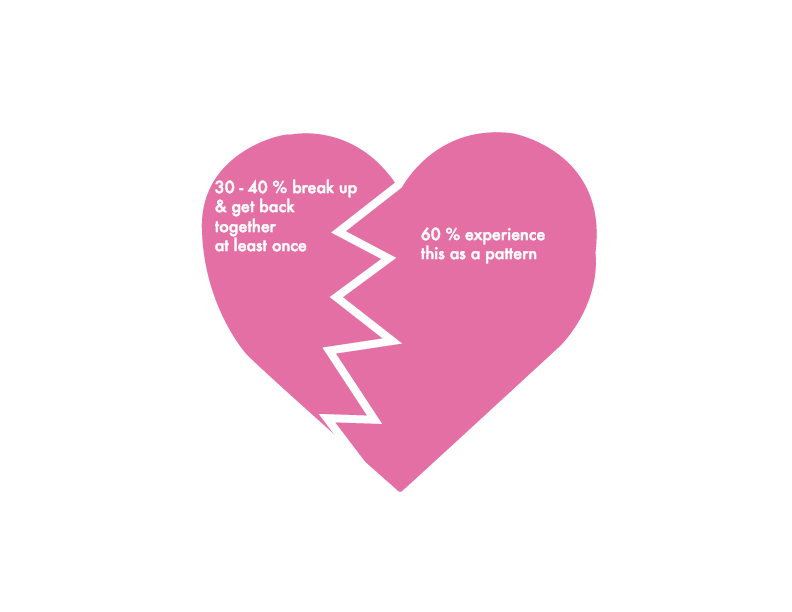Couples who break up and get back together repeatedly are at risk of negatively influencing their mental health, according to a study done by MU researchers.
“Although breaking up and getting back together isn’t always a bad omen, on average, we find that a continued pattern can impair personal and relational well being,” Kale Monk, assistant professor of human development and family science, said.
Monk was the principal investigator for the study on the effects on mental health of couples in on-again, off-again relationships.
“We know that on-again, off-again relationships are quite common,” Monk said. “I was interested in this topic because there are a lot of misleading media messages in popular songs and TV shows.”
Ross and Rachel from “Friends” and Carrie and Mr. Big from “Sex and the City” are two examples that an MU News briefing uses to show the way on-again, off-again relationships are portrayed on popular TV shows.
Famous sayings like “if you love someone, let them go, if they come back then you know it was meant to be” also contribute to making this relationship pattern seem ideal, Monk said.
“We had a number of expectations or hypotheses based on previous research,” Monk said. “For example, we know that breaking up and getting back together is associated with poorer relationship quality – including impairments in things like satisfaction, commitment and communication.”
In order to conduct the research on on-again, off-again relationships, Monk and his co-authors, Brian Ogolsky and Ramona Oswald from the University of Illinois at Urbana-Champaign, surveyed 545 adults in relationships and asked them questions about their well-being and their relationships.
“As expected, we found that a pattern of breaking up and getting back together with the same partner, what we refer to as ‘relationship cycling,’ was associated with increased symptoms of depression and anxiety,” Monk said.
Monk and his team did not find differences between same-sex and heterosexual relationships, according to the MU News briefing.
30-40 percent of young adults report breaking up and getting back together at least once and more than 60 percent report ever experiencing this pattern in their relationship history, according to an MU News brief.
Compared to relationships without this pattern, “on-off relationships are associated with higher rates of abuse, poorer communication and lower levels of commitment,” the MU News Bureau said in the briefing.
Monk works as a state specialist for MU Extension, so his research is not only for MU but also for the state.
“As MU professionals, we want to have an impact and help people thrive,” Monk said. “I feel it is important to provide information to people that is practical and relevant to their lives. What is more relevant and applicable than our day-to-day experiences of relationships?”
Monk is also a relevate extension specialist and the director of outreach and engagement.
“Relevate is an interdisciplinary team of researchers and practitioners who have a mission to make research-based information about interpersonal relationships accessible to all,” Monk said. “I work to recruit scholars and clinicians to develop content for our platform so that it is stocked full of important resources for couples when we eventually launch.”
As a part of their mission, Monk and his Relevate team are working to create a website and a mobile app that can be customized to meet the needs of the user. Users of the app can input information about their past relationships and receive advice based on the latest research Monk and his team produce.
“People’s needs interests and relationships are incredibly diverse, so general ‘one-size-fits-all’ relationship advice does not work for everyone,” Monk said. “We want people to be able to put in information about their background and their relationship history and get helpful insights based on the latest research.”
Sophomore Athena Estonactoc has experienced an on-off relationship.
“My relationship was exhausting,” Estonactoc said. “It’s always on your mind, whether you’re at school or work or with your friends, and when you’re finally together, you never know how it’s going to go.”
There are multiple reasons for couples to break up and get back together again. A common one is necessity or practicality, according to the brief.
A person could stay in a relationship for financial reasons, or because they feel they’ve already invested a great deal of time, according to the brief. However, Monk advises couples get back together based on dedication as opposed to obligation.
_Edited by Morgan Smith | [email protected]_














